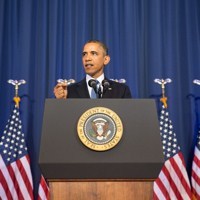
In last week’s column I raised the question of whether the United States can succeed in achieving its strategic objectives with regard to stability in Afghanistan and curtailing Iran’s nuclear ambitions through negotiations with the Taliban and the new government of Iranian President Hasan Rouhani. But if the reaction of U.S. pundits to the Obama administration’s efforts to get accused NSA leaker Edward Snowden extradited are any indication, then the sort of protracted diplomatic efforts needed to resolve the Iran and Afghanistan crises are likely to run into considerable domestic political resistance. American commentators on the left and the right […]






